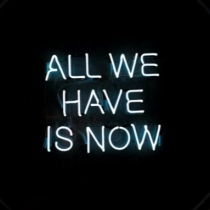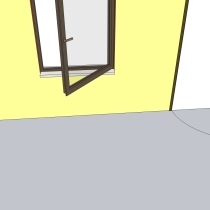Journaling can be an effective tool to help manage stress in several ways. Firstly, it allows you to express and process your emotions and thoughts in a safe and non-judgmental way. Writing down your worries and concerns can help you gain clarity and perspective on the situation, which can in turn reduce the intensity of your stress.
Additionally, journaling can help you identify patterns in your thoughts and behaviors, which can enable you to make positive changes in your life. By tracking your moods, energy levels, and stress triggers, you can gain insight into what factors contribute to your stress and take steps to avoid or manage those triggers in the future.
Finally, the act of journaling itself can be a calming and meditative practice, allowing you to focus on the present moment and reduce your anxiety. Overall, journaling is a simple yet powerful tool that can help you cope with stress and improve your emotional well-being.
Journaling and writing down intrusive thoughts can help you better understand them and their trigger, and take control. By learning what triggers you, when the triggers occur, what causes them, and how you react to them, you can learn how to take control and, with time, overcome OCD.
Journaling is a great tool for figuring these things out. Journaling slows down your mind and allows you to really inspect each thought you are going through and writing down. This allows you to understand them at a much deeper level. This deep level of learning can help you expose triggers, and can show you a clearer way of how to deal with these triggers.
- Don't judge yourself, your journal is for you, not for others.
- Don't try to make it perfect, allow yourself to make mistakes in spelling and grammar.
- Don't copy other people's writing styles. Write in your own way, however it comes out.
- Don't force yourself to write, not every day and not a certain amount of words/pages.
- Don't let journaling take over your life or become an obsession.
- Find a spot you feel comfortable in, and that you won't be interrupted.
- Use a pen and notebook that you enjoy using.
- Don't just write down things that happened, reflect on them, analyze them, try to understand them.
- Make journaling a habit by doing it at a scheduled day and time, but don't be too strict.
- Journal with an open mind, allow your thoughts to flow, and explore even the silliest ideas.
Many therapists recommend to their patients to start journaling, or to continue journaling if it was a practice they had in the past. This is, of course, if the therapist and the patient feel it would benefit the patient and their therapy.
Journaling may not be for everyone, but during therapy, a therapist can understand if journaling is worth trying, and if so, they can also give guidelines and items to focus on while journaling.
Journaling is a great practice to supplement therapy, but it is not a substitution to therapy. Many therapists suggest to their patients to start journaling if it is something that they believe they will benefit from. They also provide guidelines and further help with the practice, and even go over the notes during their next therapy session.
Journaling can be a powerful tool, and it can really help make a big difference, but it cannot be emphasized enough that journaling is not a substitute for therapy, but it can be an excellent supplement to it. If you are in therapy, consult with your therapist. Ask them what they think about it, and they will most likely be able to give you instructions or things to focus on while journaling.
The first step is to find a journal that you will enjoy writing in. This can either be with an actual physical journal, or on a device if that is what you prefer, though, I recommend an actual journal of some kind. This is very important, as if you do not like what you are writing in, it is very likely that you will not enjoy writing in it either, and you probably won't.
The next step is to find some time to be alone, and a place you can be alone and uninterrupted in. Since journaling is a very personal practice, one where you are getting out what ever is on your mind and what ever you are feeling, it is recommended to find a very private place where people will not bother you.
Now, it's time to actually write. You can start writing, literally, what ever you want. I like to ask myself why I am even journaling, and to write that answer down. That question usually leads me to further questions. Find what works for you, ask different questions to help get your thoughts going, or, if you are having a bad day, write about that. Try to explore the things you are writing down, what they mean to you, your reaction to them, and anything else that you feel and that is in your mind.
It is important to understand that journaling should not be forced. You may find that sometimes, you will sit down to journal, but won't actually have anything to write down. What many people do in this situation is to force themselves to come up with thoughts to write down. This is not an efficient way to approach journaling, as you can get very tired of this practice very quickly.
You do not have to journal every day, and you do not have to write a whole page each time. Even the habit of sitting down and taking out your journal can help get you in a better mood. If all you have to write is "I had a good day", then that is all you need to write.
Journaling can have many benefits, such as helping to process emotions, better understanding difficult situations and how to handle them, providing a creative outlet, and helping to boost self-confidence and self-esteem.
Those are really just a few of the benefits. One of the true powers journaling has, is how easy it is to start doing this. All you really need is a pen and paper, and to start asking yourself questions that get your thoughts flowing.
Journaling is a practice, and like other practices, it can take time and patience to get better at, but once you find your way, the benefits this simple practice can provide are well worth the time and effort.
Some reasons why you may feel that journaling isn't working for you are: you are expecting the wrong things from the practice, you are not asking yourself the right questions, you are forcing yourself to write more than you actually need to, you are not personalizing it.
There are of course more reasons why journaling may not be working well for you, be those are some very common reasons.
Expectations:
If you expect things that are not realistic, such as journaling being a cure for what ever you are dealing with, then you may end up very disappointed when the practice does not provide those results. Understand that journaling is not a magic trick, it will not suddenly change your life. It is a practice that takes time to get better at, to build up the patience and acceptance of the practice. It takes time to build up the benefits it can provide. Give it the time it needs.
Asking the right questions:
Are you asking yourself the right questions? Searching online, you can find hundreds of journal prompts to give you examples and inspiration for questions to ask yourself while journaling. Don't stick to the same ones if they aren't working. Try out different prompts, explore them and see which work best for you. There are no rules when it comes to which questions to ask yourself, just as long as you feel they are benefiting you and not making things worse. Try asking questions based on the reason you are journaling in the first place, ask yourself how you are feeling, why you are feeling that way, and continue from there.
Forcing yourself to journal:
If you don't want to journal, don't. If you don't have anything to write, don't. If you only have enough for half a page, or a few sentences, then write just half a page or a few sentences. The point is to not force yourself to write when you don't have anything to write. The point of journaling is not to write as much as you can, but, to write what you need.
Personalize journaling:
Journaling is a very personal practice. You decide how to do it and what's best for you. Find your own way to do it. Find a spot that makes you more comfortable, that makes your thoughts flow better. Use a notebook and a pen that you like that you will want to write in. Ask the questions that get your mind flowing. Write in your own style, without fear of judgment from others. Your journaling practice is your own, and no one else's. Make it your own, however you like to do it.
With all of the benefits that journaling can have, there can also be negative impacts if given too much priority in one's life. Like everything, journaling must be done in moderation, and should be used responsibly.
If you spend your time journaling by just going through the bad and the negatives in life, while blaming yourself and others in the process, you could just be reinforcing that negativity. This is especially true if these things are your main focus while journaling.
Remember, journaling is a tool to help you understand yourself better, and the world around you. If you focus only on the negatives in this world, it will be very difficult to find any positives. The more you linger on the negative parts of life, the harder it will be to let go of them and to focus on more positive aspects of life.
I always like to start by asking myself, "Why am I journaling?". If I chose to start journaling and to start writing, there must be a reason for it. If I can understand that reason, even if i just partially understand it, I can use that as a guide to asking myself further questions.
There are many questions you can ask yourself, some people like to stick to the same questions, some like to ask different questions each time, and some like to mix it up. There aren't really rules or "right" ways of journaling, it just depends on why you are journaling and what you hope to get out of it.
Based on the reason you are journaling, you may want to try different journaling types, such as mindfulness journaling, gratitude journaling, or reflection journaling. There are many different types, and each may have different prompts that can help get you started and get your thoughts flowing.
If you are doing morning journaling, or are considering starting to do it, here is an article about how to start a morning journaling habit, which includes 100 prompts.










